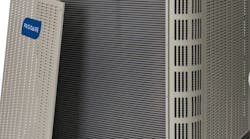Just about everyone in this industry knows about the Montreal Protocol, and just about everyone has an opinion about it too.
Under the Montreal Protocol, the United States and other developed nations are obligated to achieve a certain percentage of progress toward the total phaseout of hydrochlorofluorocarbons (HCFCs) by certain dates.
By the year 2010, there will be a mandate in place for a 65 percent reduction in the consumption of HCFCs, meaning there will be no production or importing of HCFC-142b and HCFC-22, except for use in equipment manufactured before Jan. 1, 2010.
However, just because there are still 2½ years left to meet this next milestone doesn't mean we're waiting until then. As an industry, we've already begun to take steps toward this phaseout, and a major undertaking has been the reclamation of these refrigerants in the equipment currently in use — a fairly expensive task.
The Refrigeration Systems Council of HARDI has been working to make sure this industry has a good handle on the entire process, and it's looking to its member companies for ways to make the phaseout — and reclamation — easy for HVACR contractors.
“A program has to be ‘painless’ for the contractor,” says Frank Meier, Meier Supply Co., chairman of the Refrigeration Systems Council. “The higher the cost, the lower the participation.”
Recouping Recovery Cost
Following HARDI's Annual Fall Conference in 2006, the Refrigeration Systems Council conducted a survey of HARDI members. The survey presented some ideas about reclamation activity and asked for the members' thoughts — be they positive or negative.
Analyzing the results, it's clear that most distributors are on the same page with many of these issues. Receiving an overwhelmingly positive response — 92 percent of respondents — was the statement: “HVACR contractors should charge end-users an environmental recovery fee.”
According to Bud Healy, HARDI's education director who oversaw the survey, this makes a lot of sense. After all, many businesses do this, and consumers are used to it.
“Automobile service stations have recovery fees for oil and just about anything else they can charge an environmental fee for,” Healy says. “Reclamation costs the contractor time and money, so they should charge the end-user for it.”
There are, however, some obstacles to implementing such a program. Competition is tough in this business, and it would be difficult for some contractors to compete if they have to charge a fee for reclamation.
“The industry is so fragmented that I doubt this would be successful,” says Donald Frendberg, executive vice president and COO of HARDI. “Trying to control this would be next to impossible. I don't know how it would be governed.”
The main reason distributors agree on this issue, according to Healy, is that costs are associated with the recovery of refrigerants and, in turn, putting that refrigerant back into the marketplace.
“The distributor is going to charge the contractor when they bring refrigerant in, so the contractor has to recoup that cost somewhere,” Healy says.
Meier says that a program where contractors can charge end-users an environmental recovery fee is essential.
“We believe many contractors are storing rather than venting used R-22,” Meier says. “They're just waiting for a viable option.
“Any program involving fees would have to be mandatory, not voluntary. A level playing field for all distributors is a must.”
Enforcement
Another area of major concern is with EPA certification and enforcement:
-
Eighty-two percent of respondents agree that to assure reclaimed R-22 quality meets ARI 700 standards — a third party must certify all reclaim activity.
-
Seventy-two percent agree that firms that illegally vent R-22 should lose their EPA certification cards for one year.
-
Sixty-nine percent agree that EPA enforcement against illegal venting should increase.
From these responses, it's clear that distributors believe regulations are in place right now that, if properly implemented, would improve the recovery and reclamation of refrigerants.
“It comes back to the point of, ‘Why don't you enforce the rules that you already have?’” Frendberg says. “It doesn't seem to be going to happen with the EPA. For whatever reason, the EPA doesn't see themselves in the position of the enforcers.”
But, as Frendberg says, this industry is reacting to the problem and taking it on. Distributors and contractors aren't just sitting back and waiting for the government to do the enforcement.
“There's tremendous cooperation and discussion within the industry to make it work ourselves,” Frendberg says. “We have an alliance of, really, all of the HVACR associations. The executives meet a couple of times per year, and this is one of the main subjects we talk about all the time — recovery, reclaim and so forth.
“We are working as an industry to make changes; we're not expecting the world to change for us.”
Negative Feedback
Just as distributors are in positive agreement on issues such as fees and EPA enforcement, they are equally in agreement against issues that would place the majority of reclamation responsibility on themselves:
-
Ninety-four percent disagree that distributors should provide a used refrigerant pickup service at a contractor's place of business, to make it easier for the contractor.
-
Ninety percent disagree that they should sell new refrigerant only in the same quantity as used refrigerant returned by the customer.
-
Eighty-two percent disagree that they should put all customers on allocation based on previous purchase volume.
“We're all in this together, because the impact is on everybody,” Frendberg says. “There isn't anyone that is standing out.”
Conclusions
Some other conclusions that can be drawn from this survey are that wholesalers are pragmatic business-people: They acknowledge the critical importance of government in regulating refrigerants that are bad for the environment; however, they're also wary of too much government intervention in the marketplace.
Distributors agree that contractors must raise their prices to cover genuine environmental costs. They also believe that incentives and stronger enforcement on venting will produce more R-22 returned for reclaim and reintroduction into the market to service existing systems.
Wholesalers believe these activities and other new ideas will minimize the impact of the decline of new R-22, and they're more than willing to participate in helping the industry get where it needs to be.
“We believe that it's everybody in the industry's responsibility to make it happen — from the manufacturer to the distributor to the contractor,” Frendberg says.
The complete results of this survey, which was conducted December 2006-January 2007, were released to HARDI members via an advisory e-mail in the spring. Complete results are also available online at www.HARDInet.org.
Pete Grasso is an associate editor with Contracting Business magazine. Contact him at 216/931-9439 or [email protected].





